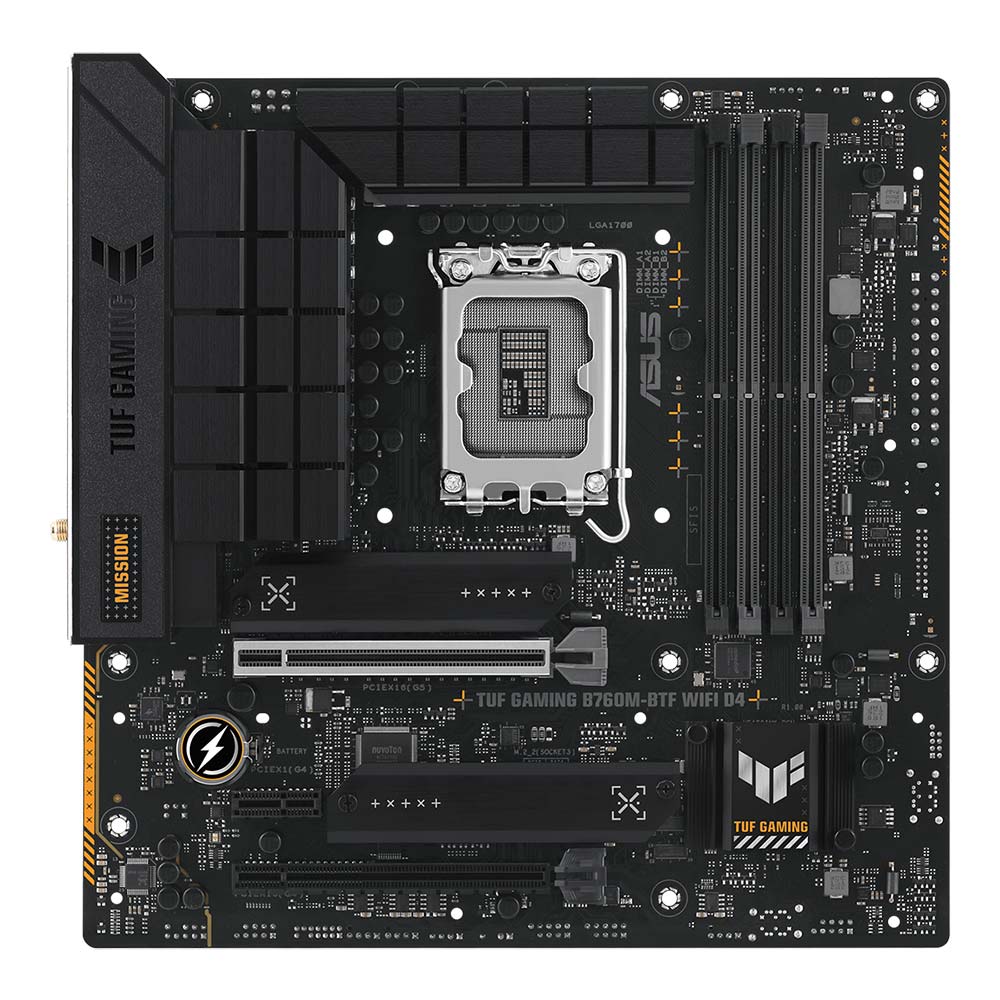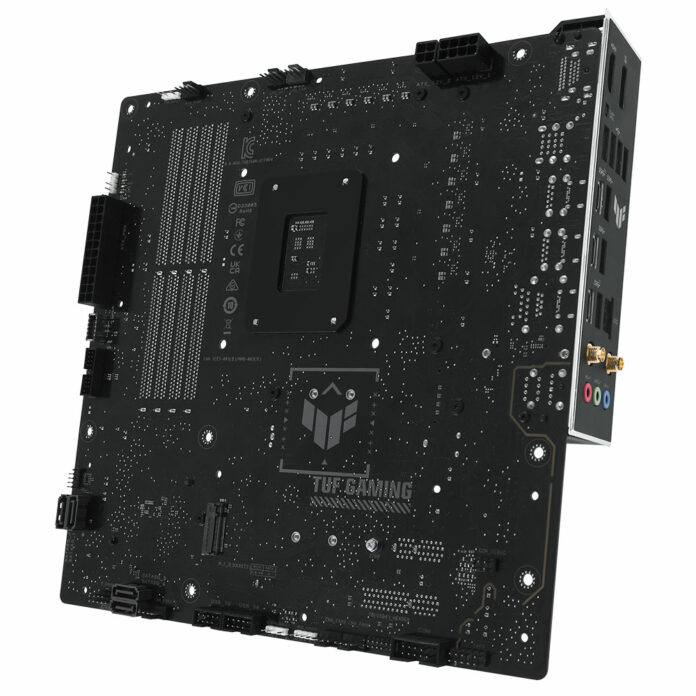Manufacturing behemoths such as Asus are never afraid to try something different, and it’s often the unexpected ideas that catch our eye. The TUF Gaming B760M-BTF WIFI D4 motherboard is one such example.
In an effort to minimise cable clutter and enable tidier builds, this Micro ATX board shifts a whole bunch of connectors to the reverse side, helping ensure mandatory wires are hidden from view. That includes chunky 24-, 8- and 4-pin power connectors, as well as SATA ports, USB headers, fan headers and also the front panel connectors. Heck, even the aRGB and Type-C ports are tucked away around back.
Seems a novel idea, and the end result is much neater presentation, but there’s an obvious caveat. Anyone who has built a PC will no doubt be scratching their head wondering how you’d ever get such a setup to function given most cases don’t provision for connectors behind the motherboard.

Asus appears to be targeting the DIY market, stating “the hidden-connector design can be ideal for a first-time builder, because it allows easier cable management and also enhances a build’s appearance by presenting neat and clean internals.”
That’s the theory, but it comes with a proviso in that TUF Gaming B760M-BTF WIFI D4 is only “compatible with specific case models.” Which cases remains unknown at this point, but we suspect Asus will be producing something in-house, or partnering with a third-party for purpose-built solutions. Such a collaboration echos Gigabyte and Maingear teaming up for Aorus Project Stealth.
Outside of quirky connectors, the B760-based board has decent specs for a mid-sized build. Four DDR4 DIMM slots support speeds of up to 5,333MT/s, the top expansion slot is PCIe 5.0 x16 (the second is PCIe 4.0 x1 with a further PCIe 4.0 x16 at the bottom), and you get a total of three M.2 slots supporting PCIe 4.0 x4 speeds. Onboard Wi-Fi 6 is always welcome, as is 2.5GbE LAN, and the rear I/O is well stocked with three USB Type-C (one supporting 20Gbps), plus a further seven USB Type-A of varying speeds.
An interesting twist for specialised builds and we’d be in favour of an industry-standard layout for rear motherboard connectors. Wishful thinking, perhaps, but it’d be worth it just to hide the God-awful USB 3.0 cable.

